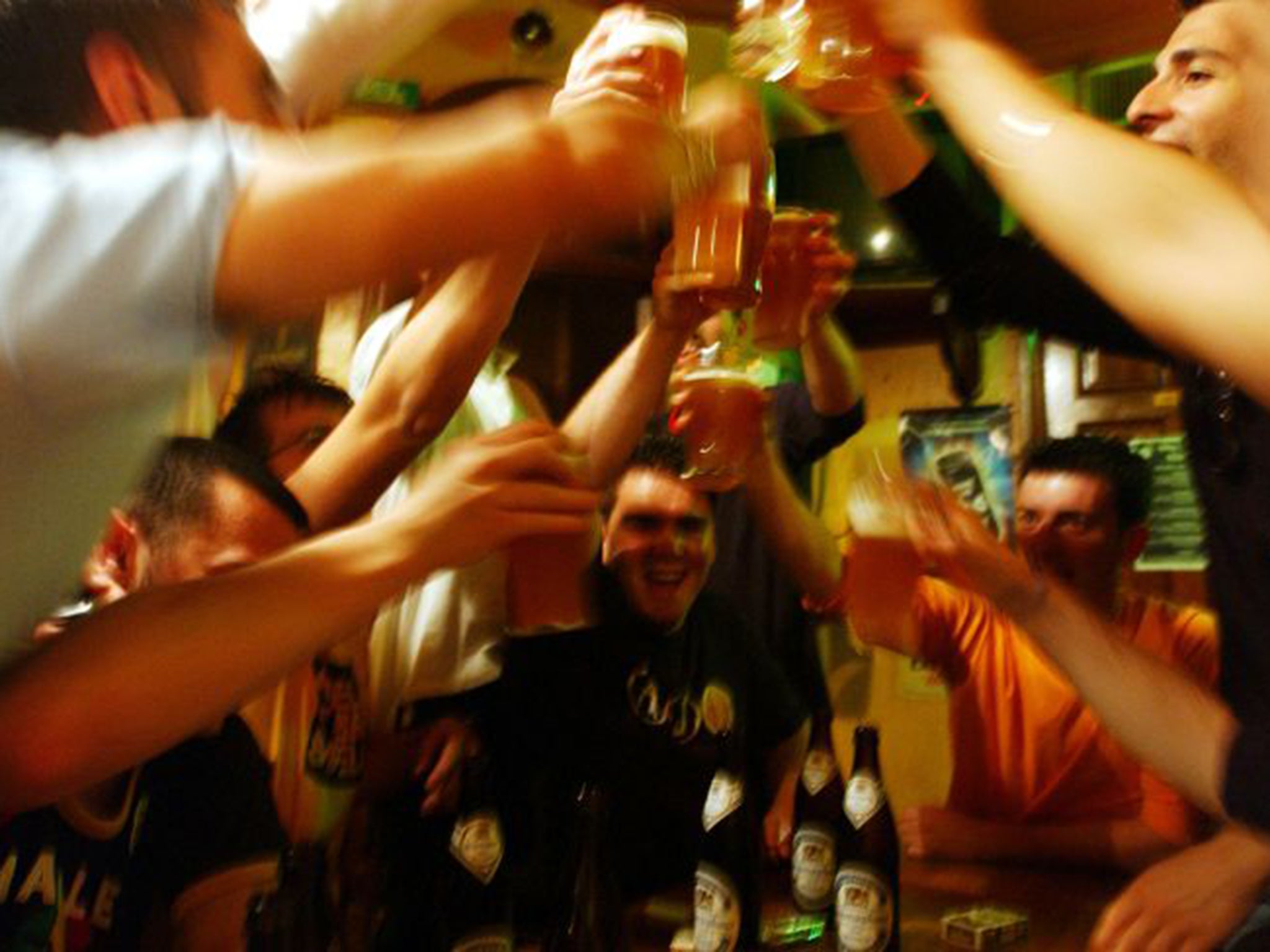Low-alcohol beer is back, and it's lager than life!
Young people, no longer embarrassed to order it on nights out, are making the brew popular again

Low and non-alcoholic beers were last popular during the prohibition era in the United States. Now, against a backdrop of declining alcohol consumption, they are enjoying a surge in sales.
Research by analysts Mintel found that consumption of such beers – which are often fermented beers that are boiled to reduce the alcohol – is increasing, specifically among young adults. One in seven British beer-buyers bought non-alcoholic beer in 2013, rising to one if four consumers aged 18 to 34.
A separate study last month found that 59 per cent of drinkers would feel comfortable ordering non-alcoholic beers when out with friends, and that 49 per cent believe they are more socially acceptable than they were five years ago.
Worldwide, 2.2 billion litres of non-alcoholic beer were drunk in 2012 – an increase of 80 per cent on five years earlier.
Christine Risby, director of The Alcohol Free Shop, believes the beers are being bought because young people are concerned about the health risks associated with alcohol, but also because they taste better. "The techniques to make non-alcoholic beer have advanced," said Ms Risby. "They're brewed in the same way – the only difference being that the alcohol is taken away at the end. Non-alcoholic beers are exactly the same quality as their alcoholic counterparts.
"The quality has to be good to pass German purity rules [a traditional standard]. Some non-alcoholic beers are even superior because they don't use the yeast over and over again." Adrian Tierney-Jones, a drinks writer, agrees: "I don't buy them out of choice, but they have become much better; the taste is much better. There is an interest in people drinking them now, especially around Christmas, because people don't want to drink and drive."
The independent Dutch brewer Bavaria has been pushing its new non-alcoholic beers on the back of the potential health benefits. "In the past, cutting back on beer meant sugary, sweet-tasting alternatives, often loaded with calories," said Bavaria UK managing director, Mike Teague. "This ensured a drop in units of alcohol consumed, but not a drop in calories. Our alcohol-free beers obviously contain no units of alcohol and possess only around 80 calories per bottle."
David Forde, UK chief executive of Heineken, said: "Consumers are looking for variety, new tastes. But at the same time they are moving from high- to low-alcohol drinks. It's all about moderation. People weren't really interested in that 10 or 20 years ago. Alcohol-free beer wasn't particularly exciting or appealing. But now we're bringing some really exciting products to the market and it's hitting the bull's eye in terms of what consumers are looking for."
Governments have worked hard over the past few years to promote more moderate drinking. Between 2005 and 2012 the proportion of British men who said they had drunk alcohol in the week before being interviewed fell from 72 per cent to 64 per cent; the proportion of women fell from 57 per cent to 52 per cent.
Non-alcoholic beer is increasing in popularity in the Middle East, which accounts for almost one third of worldwide sales.
Join our commenting forum
Join thought-provoking conversations, follow other Independent readers and see their replies
Comments